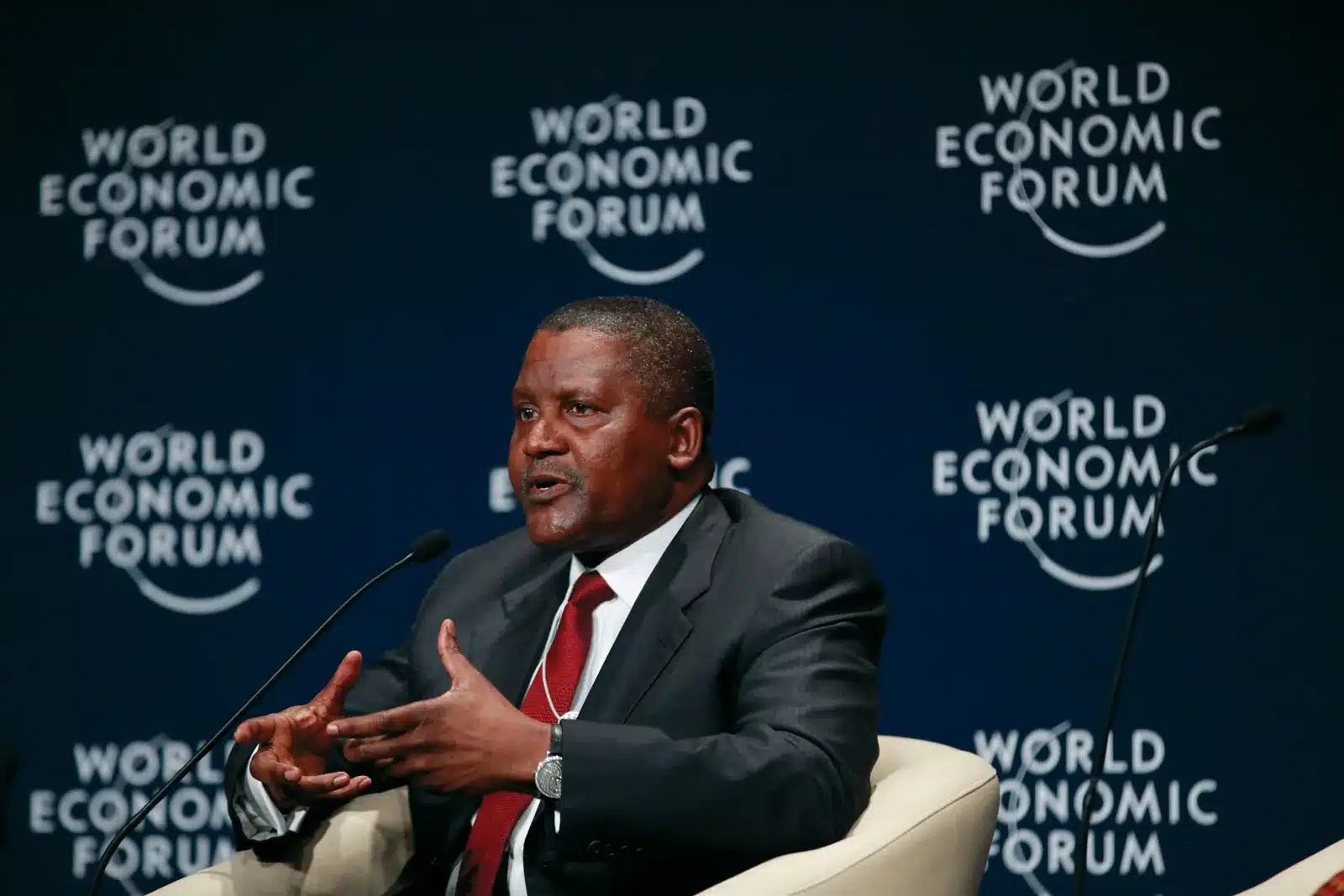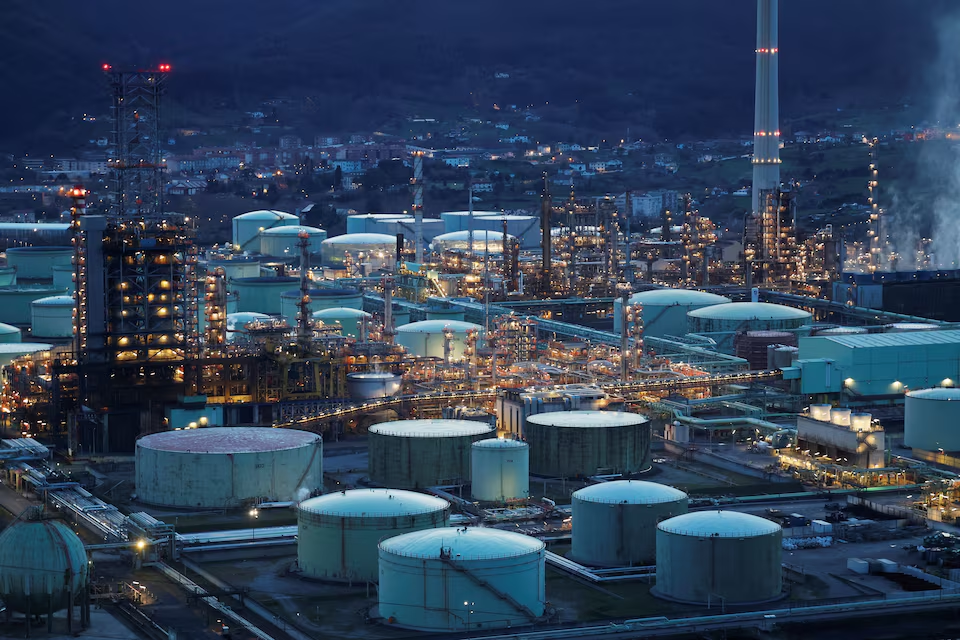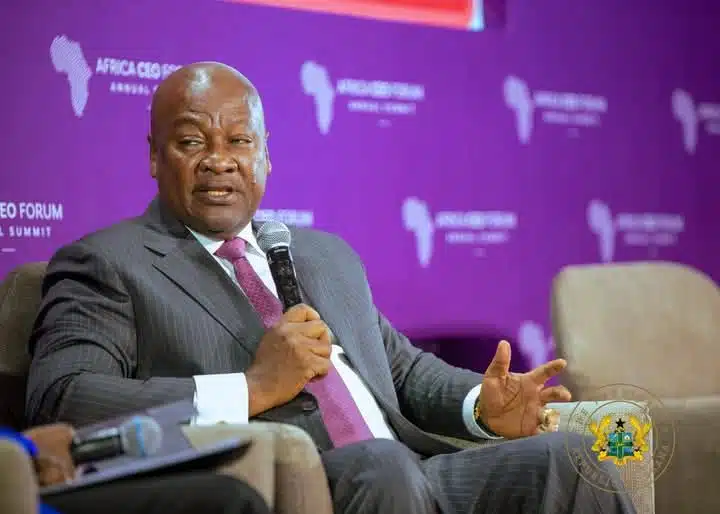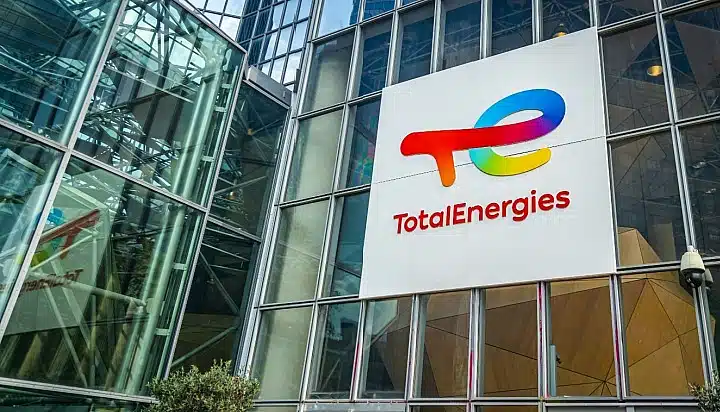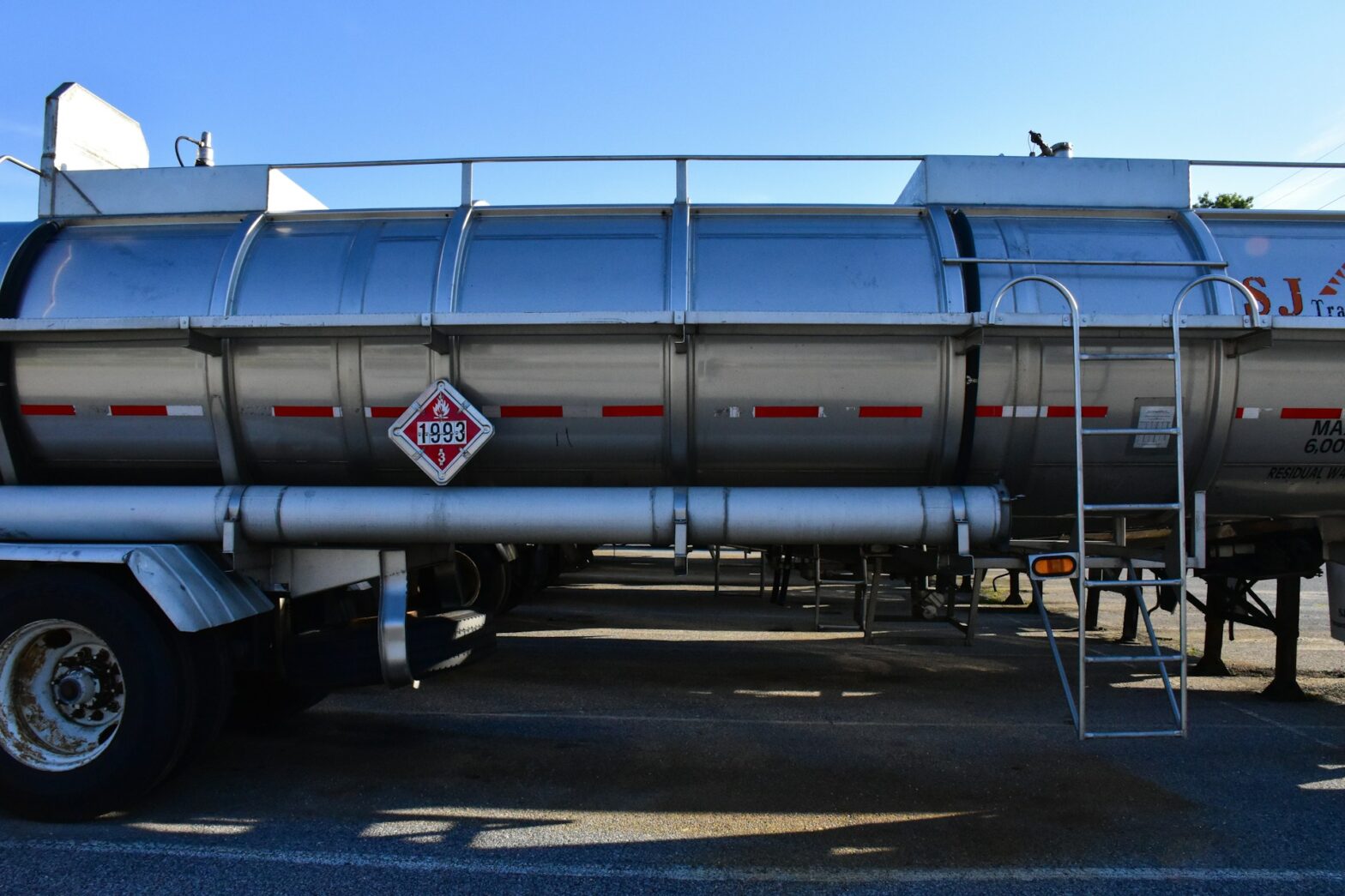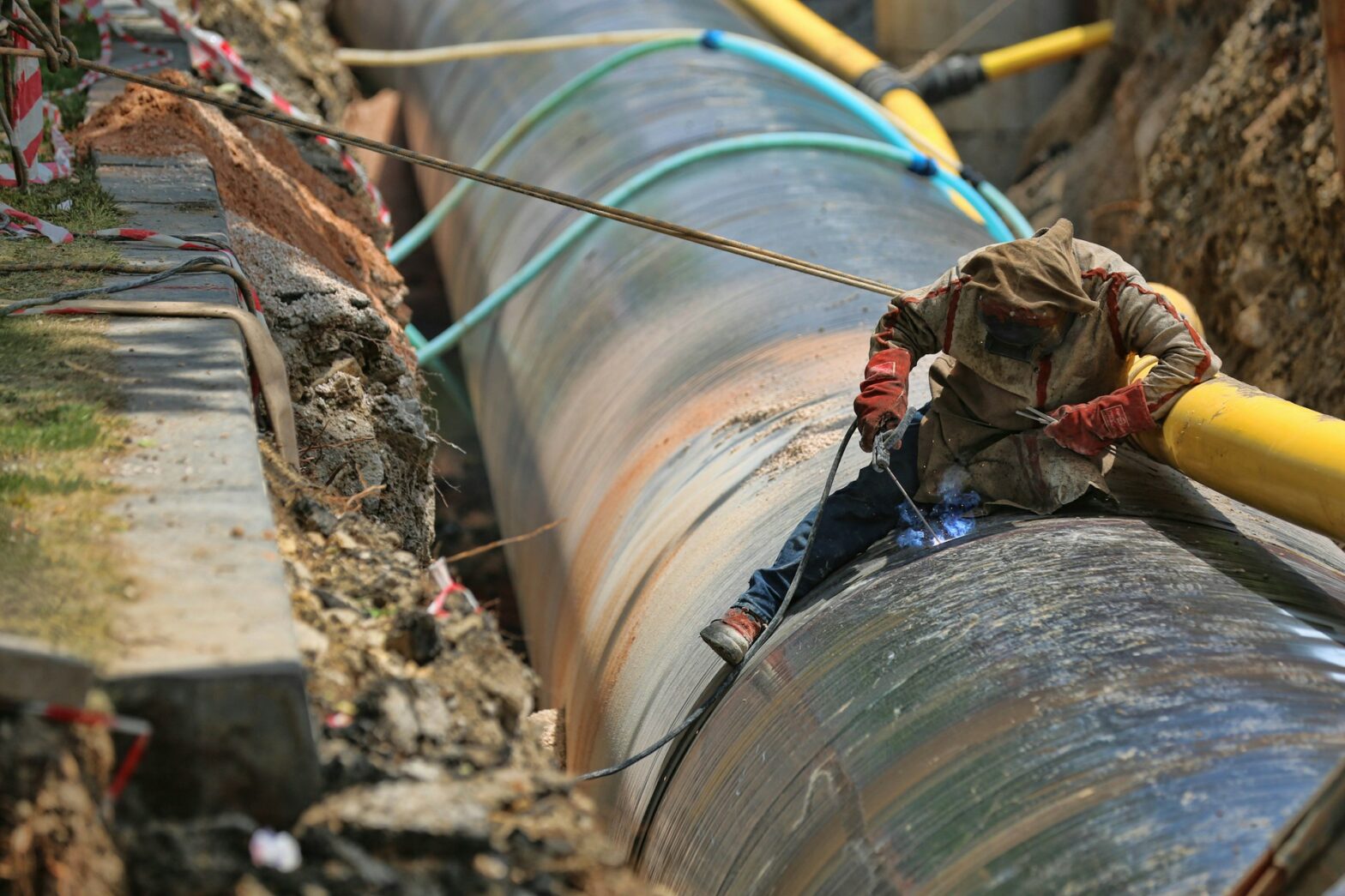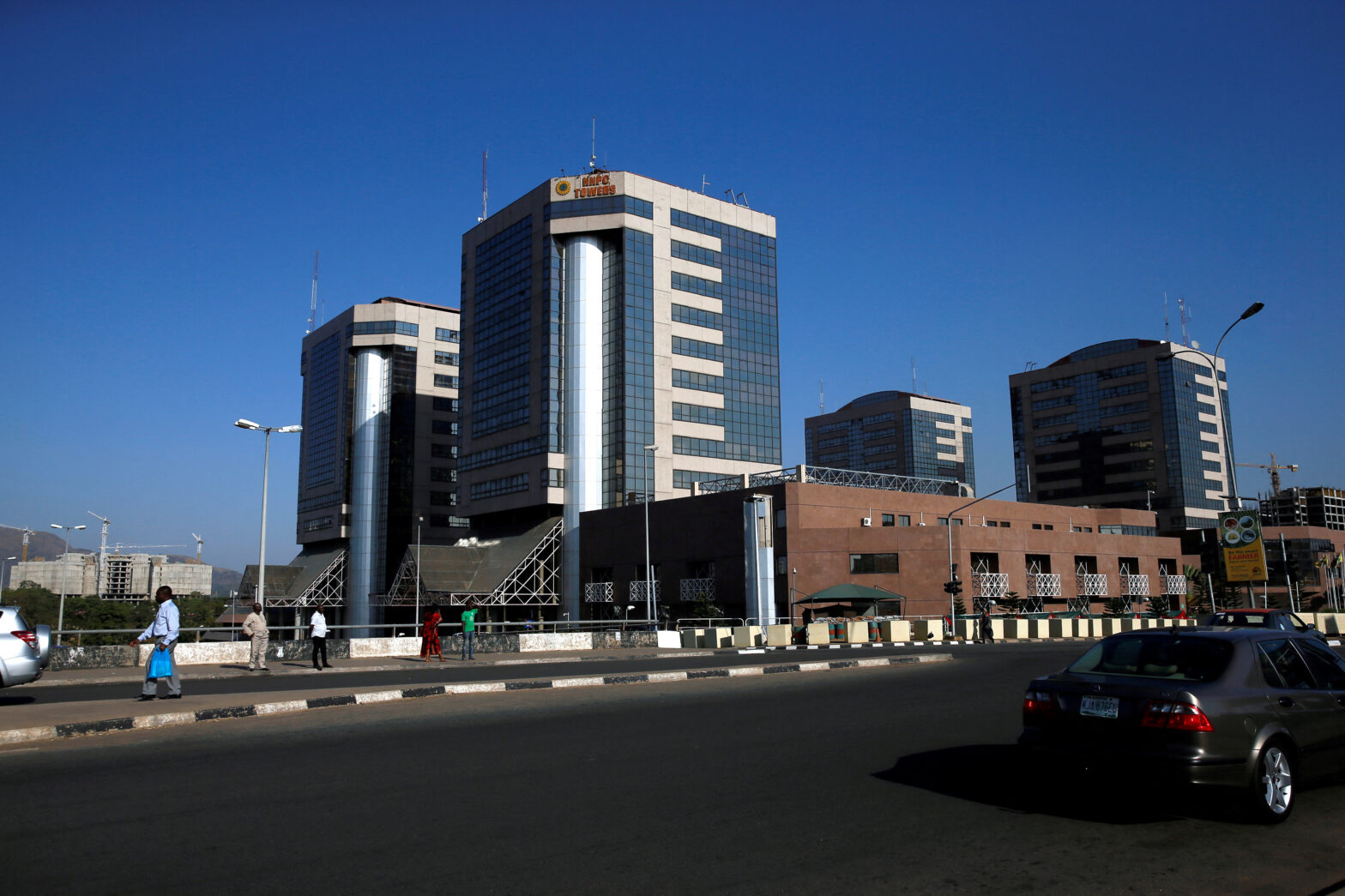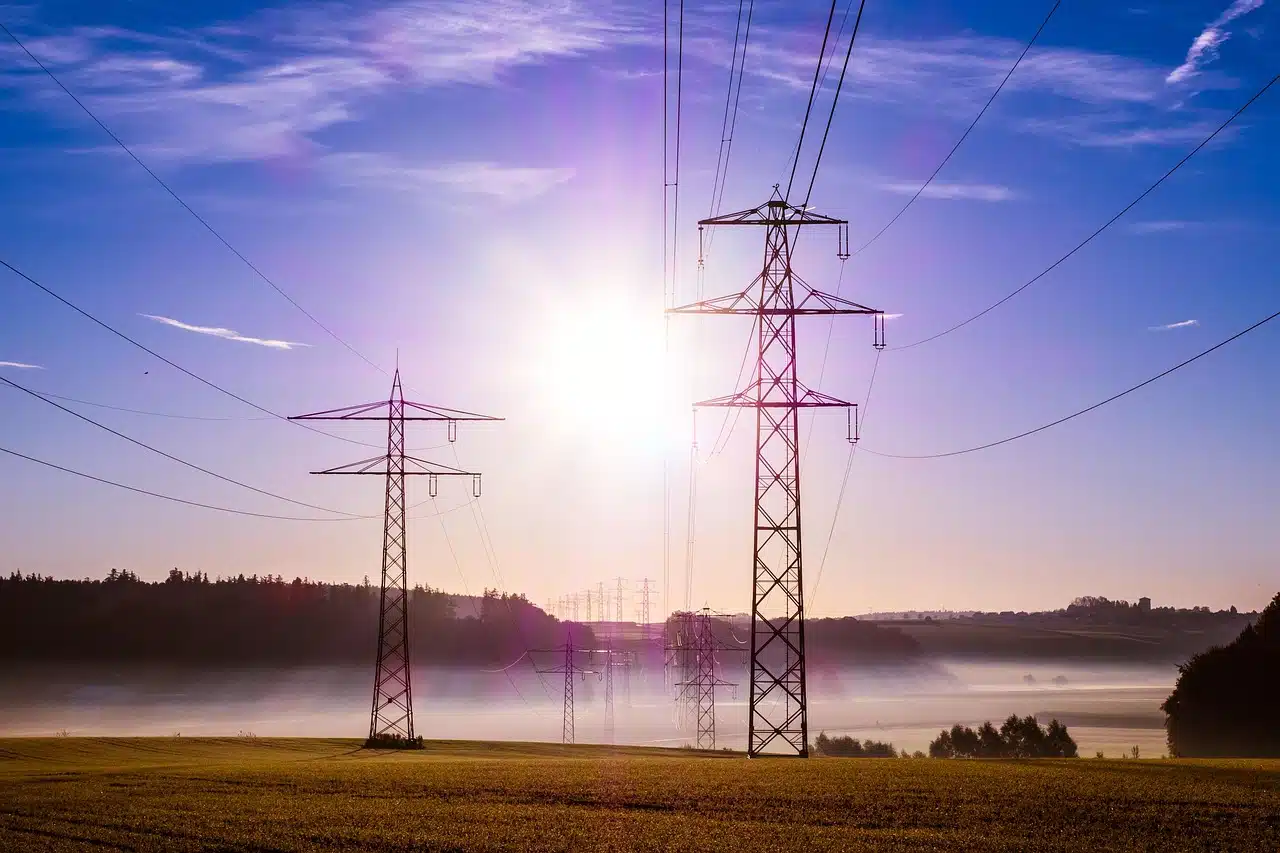Since the commencement of supply into the Nigerian downstream oil sector, the 650,000 barrels per day Dangote refinery has leveraged a strategic pricing regime to overthrow its major competitor, the Nigerian National Petroleum Company (NNPC) Limited, which has been dominating the fuel supply chain in the sector since the 1970s.
The $20 worth refinery, sitting on acres of land on the Lekki Free Trade Zone, first turned on the steam in January last year, with the production of diesel and aviation fuel.
But the facility, with a total installed capacity of 650,000 barrels per day, has consistently increased its production capacity to 85% at the moment, with full capacity expected by March.
The entry of the gigantic oil processing into the Nigerian downstream sector is not only necessary but triumphant, unveiling a new play book that’s fast becoming the benchmark for other players in the oil sub sector.
However, the price disruption caused by the refinery is threatening to pit it against other marketers and crude oil producers.
This analysis explores how Dangote Refinery is hedging the ongoing price competition with its major rival NNPC Limited, and already positioning itself for a big market share.
Plus, what this all means for the industry and consumers.
Dangote refinery’s pricing strategy
Since its launch, the Dangote Refinery has disrupted Nigeria’s downstream oil sector with an aggressive pricing strategy that is sparking competition among both local and foreign players.
The major rival here is the NNPC, with a few independent fuel importers.
Although the NNPC was the sole offtaker of products from the Dangote refinery in September 2024 when the plant started supplying petrol to the local market, it soon became its biggest contender.
NNPC lifted over 100 million litres of petrol from Dangote Refinery between September 15 and 30 at N898.78 per litre and then sold it to marketers at N765.99 per litre, shouldering a significant subsidy of almost N133 per litre.
The price was determined through an agreement between the Dangote refinery and the federal government.
Aliko Dangote,the richest man in Africa and owner of the refinery stated this at the refinery complex in Ibeju-Lekki, Lagos, where he unveiled a sample of the first refined petrol from the $20 billion facility.
Dangote stated:
“Our petrol can be in filling stations within the next 48 hours depending on NNPC and that the pricing of the petrol would be based on an agreement with the federal government. government.
“It is an arrangement which is designed and approved by the Federal Executive Council led by His Excellency, President Bola Tinubu.
“As soon as it is finalised, which he (Tinubu) is pushing, once we finish with NNPC, it can be today, it can be tomorrow, we are ready to roll into the market.”
This arrangement introduced a new pricing regime in the downstream oil market — one that’s not going away anytime soon.
This is especially true now that the NNPC operates fuel processing facilities in the country, including the Port Harcourt and Warri refineries.
By the time the rehabilitated Port Harcourt refinery first began commercial production, NNPC pegged the petrol price at N1,045 per litre (ex-depot), an increase of over 10% on the price it lifted products from the Dangote oil refinery.
This increase could be described as the government finally ditching the subsidies it paid on products from the Dangote plant.
Although the NNPC later reduced the price to ₦1,030, the market had already gone into a frenzy.
This was marked by tense back-and-forth discussions and intense media debates between fuel marketers, importers, the NNPC, and the Dangote refinery.
The first real punch in the price battle may have landed in December 2024.
Here was when the Nigerian National Petroleum Company Limited (NNPC) reduced its ex-depot petrol price to ₦899 per litre — just three days after the Dangote refinery announced a similar cut to ₦899.50 per litre.
Dangote’s price cut revealed the refinery’s potential to leverage economies of scale, offering refined petroleum products at significantly lower prices than the NNPC and imported alternatives.
Analysts see this as a clear sign of the competitive impact of deregulation in the downstream sector.
This strategic pricing — and the series of reductions that followed — is not only attracting buyers but also driving down the retail price of fuel across Nigeria.
This development carries major implications for both businesses and consumers.
Impact of price cuts on local refiners and fuel Importers
The competitive pricing from Dangote Refinery is reshaping the dynamics of Nigeria’s fuel supply chain. I believe a taxi in Nigeria today can at least argue that fact with you. I mean, they are the primary beneficiaries of reduced fuel prices at the pump.
Since the refinery commenced operations, its pricing strategy has forced other players in the sector to reconsider their cost structures, leading to the emergence of three interesting scenarios.
Nigeria, historically one of the world’s largest importers of refined petroleum products, is now witnessing a shift as more fuel is sourced locally. This trend is expected to improve the country’s trade balance and reduce forex pressure.
The refinery’s ability to meet local demand has contributed to relative price stability, and even shielded consumers from global crude oil price fluctuations, although this is not 100%
Other refiners like the NNPC and marketers are being pushed to improve efficiency and cost-effectiveness to compete with Dangote’s aggressive pricing.
Previously, fuel marketers and independent importers relied heavily on foreign refined petroleum products imported by NNPC Ltd. , but Dangote’s cost advantage discouraged the import, resulting in the state-owned energy firm prioritizing local refiners.
Mele Kyari, NNPC’s group chief executive officer (GCEO), spoke on Monday at the 42nd Nigerian Association of Petroleum Explorationists (NAPE) annual international conference and exhibition in Lagos in November 2024,
In his keynote address, Kyari said the national oil company had begun off-taking fuel from the Dangote Petroleum Refinery and other local refineries, against claims of sabotage.
“Today, NNPC does not import any product, we are taking only from domestic refineries. The point is very far from it and I’m going to speak to it straight.
“We are very proud part-owners of Dangote refinery, no doubt about it.
“We saw an opportunity that there is a clear market for at least 300,000 barrels of our production; we know that as time moves on, people will start struggling to find markets for their production.”
Kyari noted that recent developments in the oil space amidst global energy transition, makes this scenario most likely.
With the refinery offering lower-cost refined products, many importers are being forced to reconsider their business models.
Government-owned refineries, which have struggled with inefficiencies and operational setbacks for years, also face an uphill battle in competing with Dangote’s efficiency and scale.
The price cuts have significantly reduced Nigeria’s dependence on imported fuel, aligning with the government’s long-term goal of energy self-sufficiency.
However, worries have arisen among transporters, marketers and other industry players Dangote Refinery’s growing market control could lead to a monopoly.
While many people have argued against an outright monopoly, they acknowledge the refinery’s potential of commanding a large share in the competitive market, leveraging pricing and economies of scale as key selling points.
Potential challenges for Dangote and downstream sector
Despite the benefits of Dangote Refinery’s price cuts, several challenges remain.
The refinery’s seeming price dominance is causing disruptions in an industry that was previously reliant on multiple foreign suppliers.
Independent marketers who built their businesses around fuel imports are struggling to adjust, while smaller refineries may find it difficult to stay competitive without similar cost advantages.
Despite its advantages, the refinery faces challenges such as infrastructural constraints, logistical bottlenecks, and potential regulatory hurdles.
Availability of feedstock to the refinery may pose a roadblock to the refinery, if national oil output does not increase to the 2.06 million bpd as projected by the 2025 budget.
The ongoing $3 billion oil for loan swap deal entered into between the NNPC and Afreximbank can cloud the possibility of that happening.
Of course, while there would be ample volume of fuel to saturate the Nigerian market, the possibility of importing fuel in the future can not be ruled out.
NNPC has always made that point clear.
Late last year, NNPC spokesperson, Olufemi Soneye clarified that the state-owned company would continue to source products from abroad when necessary.
According to Soneye, “that NNPC today does not import any product; but only taking from domestic refineries’, should not be construed to imply that NNPC Ltd is obligated to be the sole off-taker of any refinery or that we will no longer import fuel”.
On the other hand, Dangote’s operations present new opportunities for Nigeria’s energy sector.
The refinery’s output can stabilize fuel prices, reduce the country’s foreign exchange burden, and create thousands of direct and indirect jobs.
Additionally, local manufacturers and businesses benefit from lower fuel costs, which can enhance productivity and economic growth.
This suggests that, if anything, that the key determinant that will influence import or local patronage from for the Dangote regency will be economic viability.
It’s important to note that, as a state-owned company and the supplier of last resort for Nigeria’s energy needs, the NNPC is mandated by the Petroleum Industry Act (PIA) to control up to 30% of the market.
The Act, designed to prevent monopolies, prohibits the company from exceeding this limit.
In fact, recent data by the National Bureau of Statistics (NBS) reported that refined petroleum products remained Nigeria’s top imports in the third quarter of 2024, despite the country’s increasing local refining capacity.
According to the report, petrol and diesel dominated Nigeria’s imports during the period.
The country spent N3.3 trillion on petrol imports and N1.33 trillion on diesel imports, accounting for 22.63% and 9.07% of total imports respectively.
Future of Nigeria’s fuel market under Dangote’s dominance
Looking ahead, the dominance of Dangote Refinery is expected to shape the future of Nigeria’s downstream oil market for years to come.
But the race will be far from easy.
To stay on its game, the refinery must continue to expand production and optimize operations.
Its decision to explore exports to neighboring West African countries, is in itself a sign that the domestic market can fail.
However, the long-term sustainability of Dangote’s pricing model will depend on factors such as government policies, crude oil availability, and global market conditions.
If the Dangote refinery maintains its efficiency and cost advantages, Nigeria’s downstream sector could see a lasting transformation. Consumers would benefit from lower prices, but the shift could also present new challenges for industry stakeholders.
On the government’s side, there’s a risk if market prices rise so high that citizens can no longer afford them. In that case, the government might reintroduce fuel subsidies through NNPC-controlled refineries — a move that could negatively impact Dangote’s market position.
However, this scenario would likely only occur if global oil prices soar — an outcome that seems unlikely given the current optimism in oil markets.
Another point to consider here, is that if the Nigerian Midstream Downstream Petroleum Regulatory Authority (NMDPRA) continues to issue licenses for the importation and setting up of new fuel making plants, the Dangote refinery would lose its local market share. the refinery might be forced to prioritise exporting to foreign markets.
In his statement in June 2024, Devakumar Edwin, vice president of the Dangote Group, alleged that the decision of the Nigerian Midstream and Downstream Petroleum Regulatory Authority “in granting licences indiscriminately for the importation of dirty diesel and aviation fuel” has made the Dangote refinery expand into foreign markets.
“It is regrettable that in Nigeria, import licences are granted despite knowing that we can produce nearly double the amount of products needed in Nigeria and even export the surplus,” Edwin said.
Clement Isong, former CEO of the Major Energies Marketers Association of Nigeria (MEMAN), in a recent interview said with the market going competitive, the union needs to engage in commercial negotiation with producers to ensure that “competition brings the customer the best quality, the best service, at the lowest price.”
“We want to have a good working relationship within the market but what the market does not want is to buy at a price that is too high. If the Dangote product is too expensive, marketers want the option of going to buy cheaper products,” Isong added.
In January 2024, the Dangote refinery filed a lawsuit against the Nigerian Midstream and Downstream Petroleum Regulatory Authority (NMDPRA) and NNPC, claiming both of violating the Petroleum Industry Act (PIA) by granting import licenses despite it’s production exceeding Nigeria’s daily consumption.
Under the Petroleum Industry Act (PIA) passed in 2021, the NMDPRA May assign a licence to import petroleum products to meet shortfalls in local demand to companies with active local refining licences or proven track records of international crude oil and petroleum products trading.
The Act also stresses that imported petroleum products shall meet the Afri-5 Specification (50 ppm sulphur) agreed under the ECOWAS declaration of February 2020.
The price strategy used by the Dangote refinery is revolutionizing Nigeria’s downstream oil sector, setting new market standards and positioning itself as a dominant force.
By leveraging local refining, cost efficiency, and large-scale production, it is setting new market standards and positioning itself as a dominant force.
If the mega refinery can sustain this robust efficient pricing strategy, it could lead to long-term benefits for not just its continued dominance but translates into lower fuel prices compared to imported alternatives.
This will positively benefit the economy and consumers, marking a significant shift in Nigeria’s energy landscape.

